The U.S. Dredging Industry plays a key role in domestic and international commerce and our national defense
American dredging companies compete for contracts to build and maintain vital entrance channels, ports, and waterways. Navigation infrastructure enables U.S. seaports to contribute approximately $780 billion to U.S. GDP annually, including almost 15 million jobs.
Well-maintained navigation infrastructure also ensures ready access to strategic national defense ports. Failing to maintain our seaport infrastructure would undermine our ability to compete in the global marketplace, damage our sealift capability, and harm our national defense.
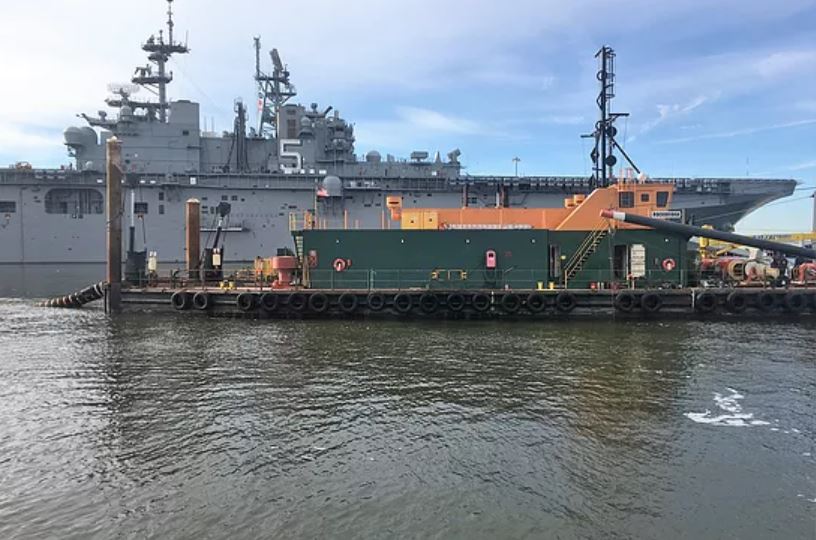
Cottrell Contracting’s Cutter Suction Dredge (CSD) Lexington conducting national security dredging operations at the Naval Station Norfolk in Virginia.
The U.S. Dredging Industry protects shorelines and restores wildlife habitat
Dredging plays a key role int the U.S. Army Corps of Engineers’ beneficial reuse of dredged material. Reusing excavated dredged material restores, preserves and protects our coastal communities, beaches, wetlands, and barrier islands. By restoring land, dredging is leading to more productive, healthy natural ecosystems and wildlife habitat preservation.
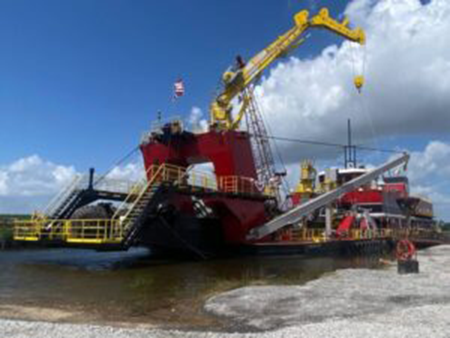
The Cutter Suction Dredge (CSD) Lorraine Hooks built for Westlake, Louisiana-based, family-owned dredging company Mike Hooks, LLC. The vessel was designed and built by SPI/Mobile Pulley Works (SPI/MPW) of Mobile, Alabama and Southwest Shipyard of Channelview, Texas. The 27-inch CSD, delivered in 2023.
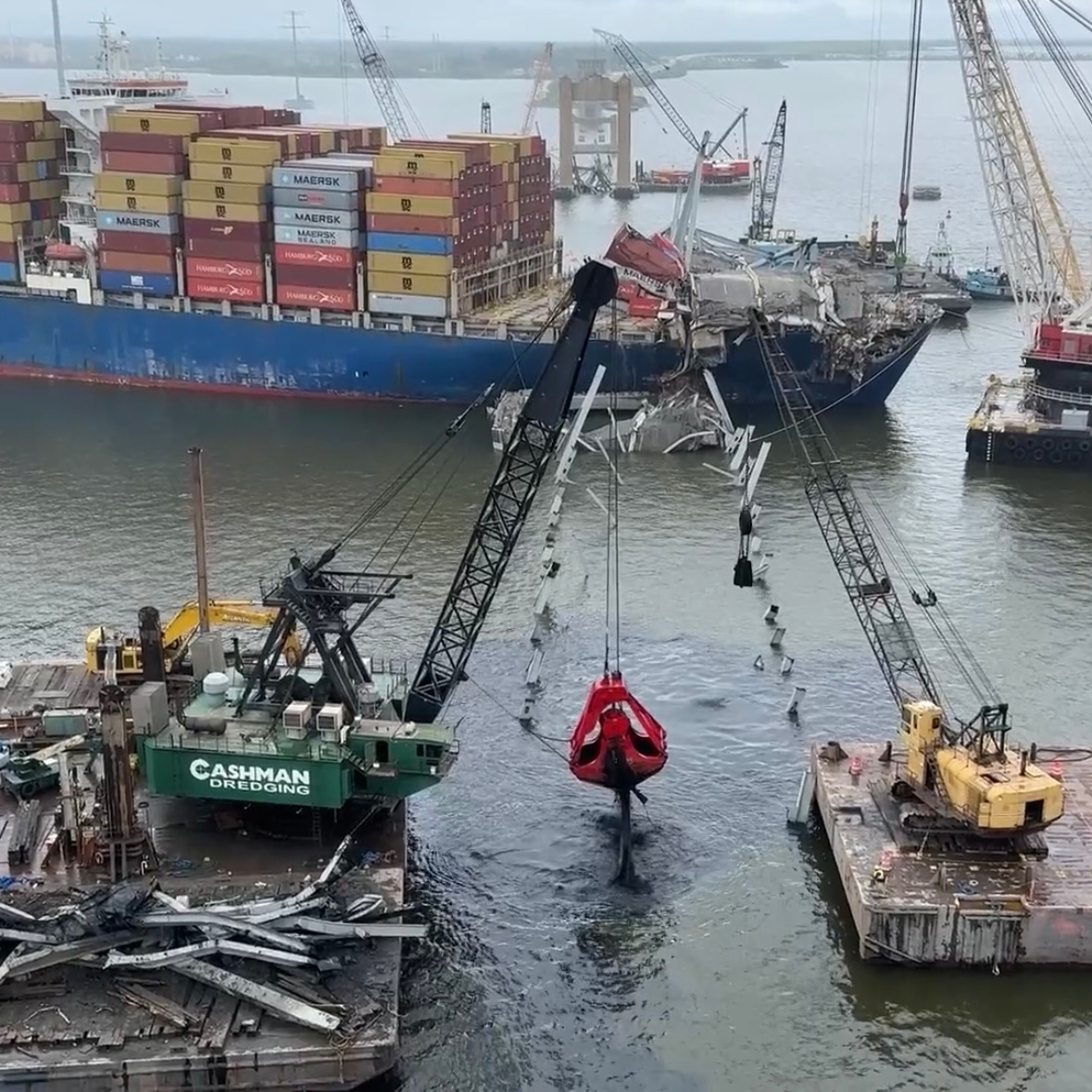
Cashman Dredging and Marine Contracting’s Dale Pyatt and Sterling Equipment’s The Pulverizer work in tandem removing debris and wreckage for the McHenry Channel in Baltimore Harbor after the Francis Scott Key Bridge collapsed in 2024. The dredging and marine construction industry helped clear enough wreckage to allow vessel traffic to begin moving with 14 days and fully opened the channel within 75-days.
U.S. dredging and marine construction industry played a massive role in the clean up and opening of the Port of Baltimore after the Francis Scott Key bridge collapsed.
The U.S. flagged dredging fleet, both private and state-owned, totals more than 400 dredges.
America’s dredging companies are in the midst of a nearly $3-Billion recapitalization program with newly built dredges and more on the way, expanding the Jones Act fleet.
In fiscal year 2022, a total of fifty-two Jones Act dredging companies were awarded federal dredging contracts.
As a result of these efficiency gains and competitive environment- In fiscal year 2022 the U.S. Dredging Industry saved taxpayers over $670 million dollars!
The Larger U.S. Maritime Industry
The U.S. maritime industry—shipyards, vessel operators, and maritime labor—is responsible for nearly 650,000 jobs with more than $150 billion in annual economic output, and over $41 billion in employee compensation. The Jones Act requires that all vessels in domestic commerce be American-owned, controlled, built, documented, and crewed.
Opening up any segment of the Jones Act trades, including dredging, imperils the ability of the U.S. to maintain and support national defense, homeland security, and economic security.
In times of war or national emergency, America needs to be able to rely on its own shipyards, its own cargo vessels, its own people and its own dredging industry to keep the ports and waterways open. Once the U.S. industry is gone, expertise, knowledge, and skills are also gone, likely forever.
The U.S. maritime industry stands together opposed to undermining our defense industrial base, our skilled workforce, and 500,000 family wage jobs. Every Administration has worked to ensure domestic maritime matters have not been included in previous free trade agreements.
We ask you to stand with us.
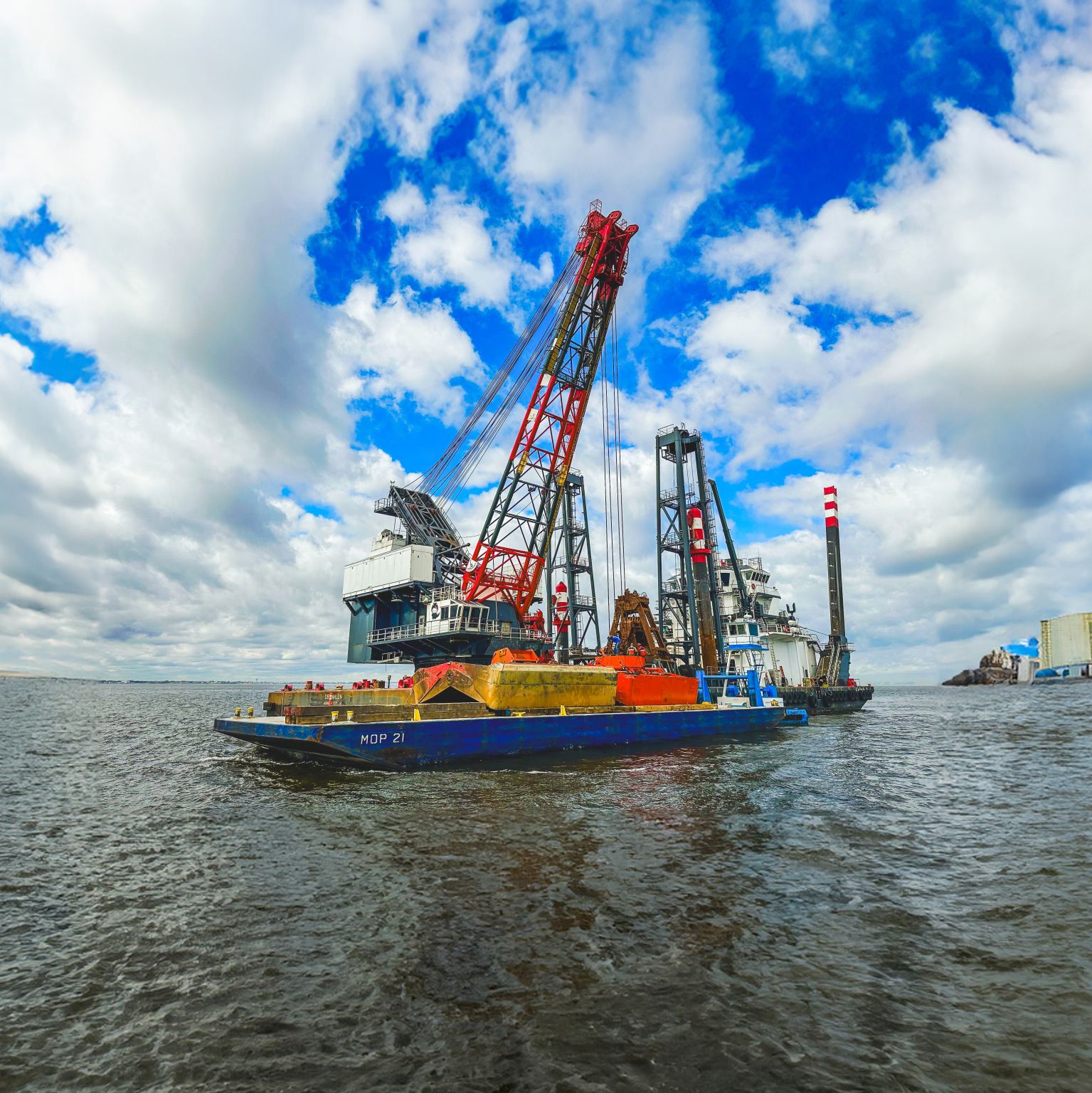
Curtin Maritime’s massive Crane/Clamshell Dredge the DB Avalon conducting dredging on the Houston Ship Channel Expansion Project in 2024. The DB Avalon provided beneficial use of dredge material to the Dollar Reef oyster mitigation site in Galveston Bay. DB Avalon is a market-first, hybrid-powered dredge vessel designed and built by Curtin Maritime to be the most efficient and lowest carbon footprint vessel of its class.
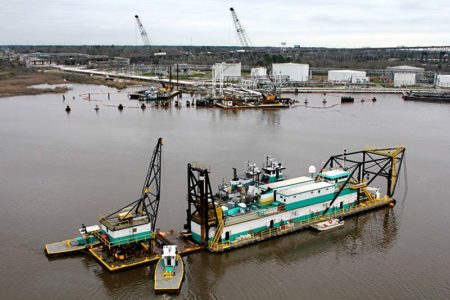
Orion Group (formerly Orion Marine Group) vessels performing maintenance dredging in Port Lavaca, Texas. In 2022, Orion placed into service its new 20-inch Cutter Suction Dredge (CSD) The Lavaca built in Southwest Shipyard , Channelview, Texas.
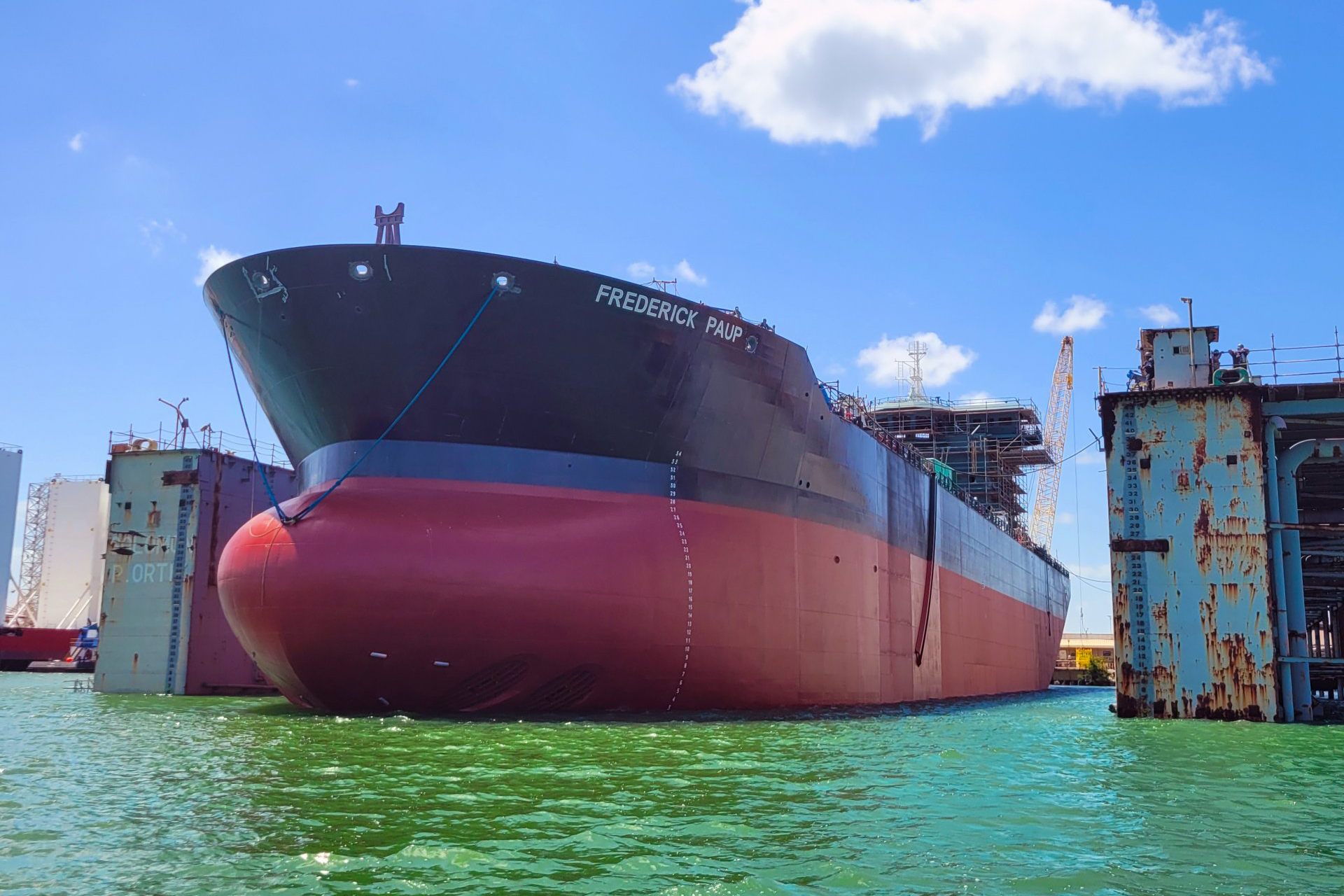
Manson Construction’s Trailing Suction Hopper Dredge (TSHD) Frederick Paup under construction at Seatrium AmFELS shipyard in Brownville, Texas in 2024. Once delivered, the 15,000 cubic yard hopper capacity hopper dredge will be the largest US-flagged, self-propelled hopper dredge in the United States.



